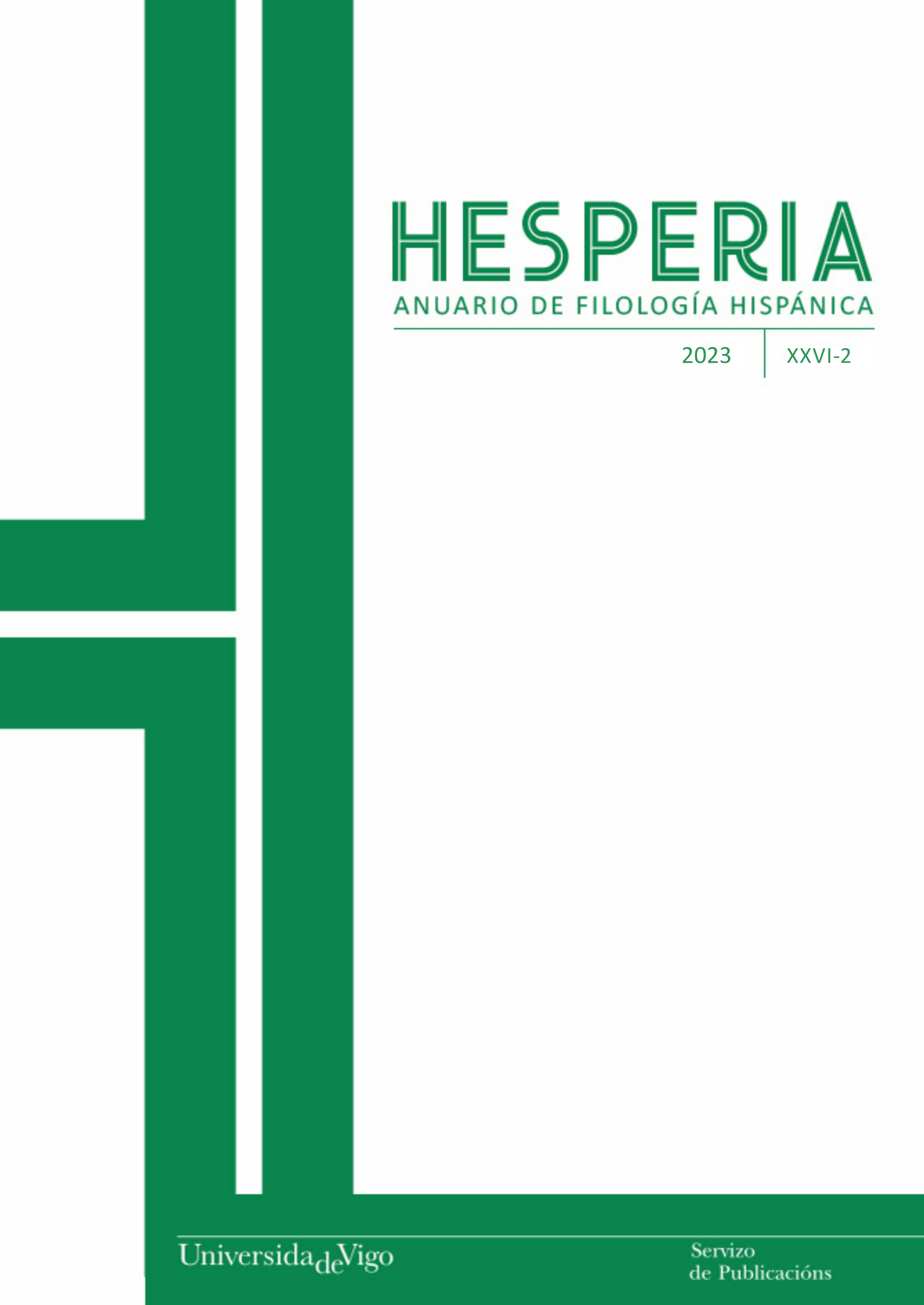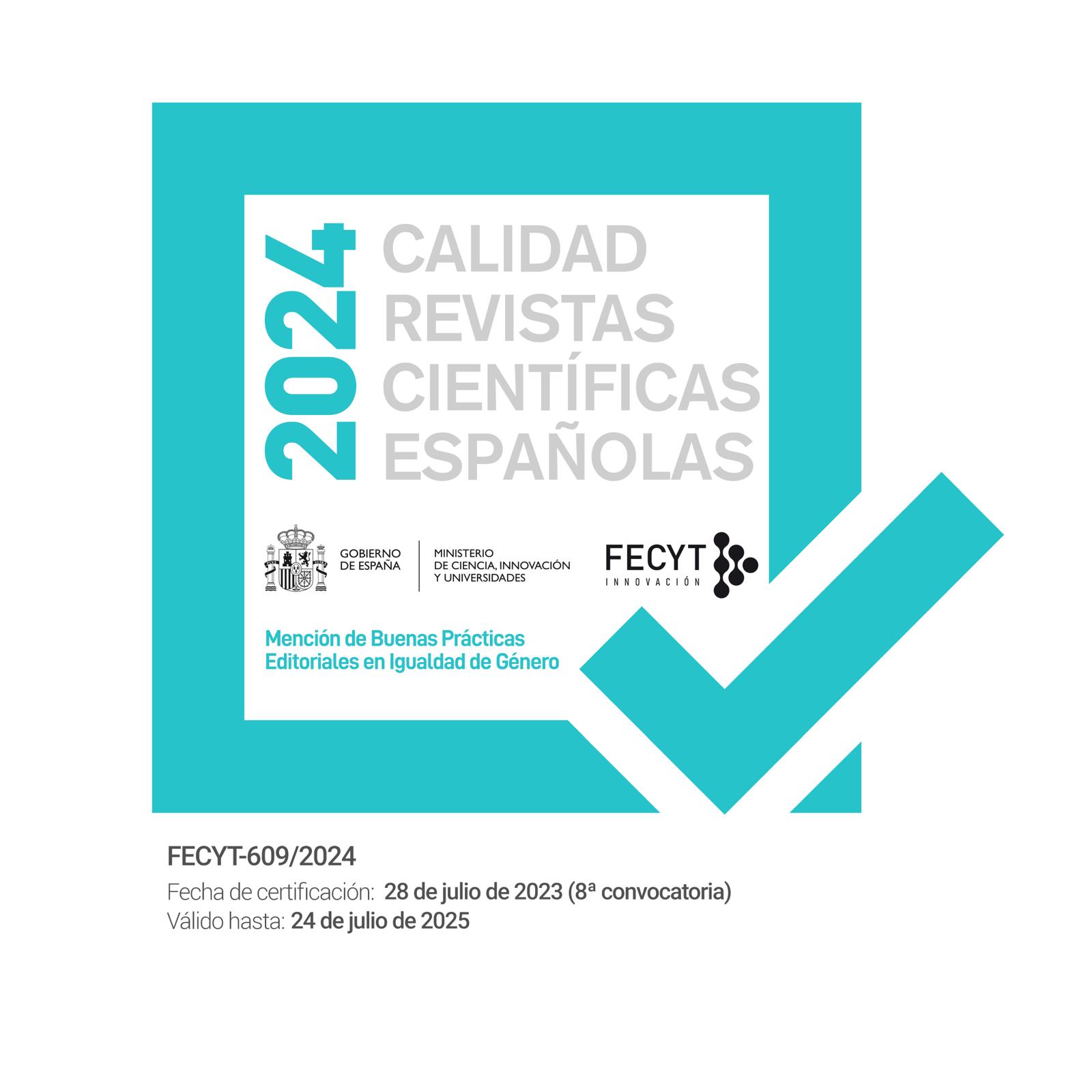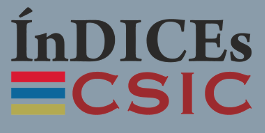LABOR INEQUALITY BETWEEN MEN AND WOMEN IN A LITERATURE CLASS IN SECONDARY EDUCATION. WORKING ON SDG5 AND GLOBAL COMPETENCE WITH A TEXT BY CONCHA LINARES BECERRA
TRABAJANDO EL ODS5 Y LA COMPETENCIA GLOBAL CON UN TEXTO DE CONCHA LINARES BECERRA
DOI:
https://doi.org/10.35869/hafh.v26i2.4704Keywords:
global competence, Sustainable Development Goals, gender equality, ESO, literature, teaching activitiesAbstract
This paper presents activities designed for a literature class in Secondary Education (specifically, 3rd year of ESO) in Spain, but can be used in other contexts. The activities are based on a text by the Spanish writer Concha Linares Becerra, and they are related to Sustainable Development Goal 5 (“Achieve gender equality and empower all women and girls”), focusing on employment equality. The objectives of the activities are also related to global competence, that is the ability and willingness to understand and act on matters of local, global, and intercultural relevance, respecting all people and contributing to the common good and sustainable development. The proposed activities intend to cultivate certain thinking dispositions, starting from observation and leading to reasoning and questioning, establishing connections between past and present events. Activities directly related to literature learning objectives are also included. The article begins by explaining the SDGs adopted by the United Nations Organization and how they are also related to global competence. The objectives, methodology and evaluation are then established, using various sources to determine the objectives related to the SDGs and the global competence that concern the activities presented. As for the methodology and evaluation, the “visible thinking routines” and “project learning” methodologies are used, which are briefly described; after that, the proposed activities are shown in detail, following the pre-activity, activity, and post-activity format. The activities involve literary aspects and others directly related to SDG5 and global competence.
Downloads
References
Aragay, X. y Martínez, M. (2020). El aprendizaje basado en proyectos PLANEA. Enfoque general de la propuesta y orientaciones para el diseño colaborativo de proyectos. UNICEF. https://www.unicef.org/argentina/media/10171/file/planea-ABP.pdf
Asia Society. (s.f.a). Global Competence. Disponible en: https://asiasociety.org/education/global-competence
Asia Society, The. (s.f.b). Global Competence: Social Studies Performance Outcomes. https://asiasociety.org/education/global-competence-social-studies-performance-outcomes
Bautista-Cerro Ruiz, M. J., Díaz González, M. J., Mendoza Carretero, M. R. y Murga-Menoyo, M. A. (2022). Guía con orientaciones metodológicas para el anclaje curricular de la Educación para el Desarrollo Sostenible y la Ciudadanía Mundial. Ministerio de Educación y Formación Profesional. Secretaría de Estado de Educación. Subdirección General de Cooperación Territorial e Innovación Educativa. https://sede.educacion.gob.es/publiventa/descarga.action?f_codigo_agc=24273
Boix Mansilla, V. y Gardner, H. (2018, 20 de noviembre). Las competencias globales. Aprende a promover las competencias globales del alumnado desde el aula. Educaixa.org. https://www.youtube.com/watch?v=YuTGr3UaGTQ&t=1955s
Centro Virtual Cervantes. Destrezas lingüísticas. https://cvc.cervantes.es/ensenanza/biblioteca_ele/diccio_ele/diccionario/destrezas.htm
Fernández-Ulloa, T. (2020). Creatividad y colaboración en la clase de español a través del pensamiento de diseño. Actas del X Encuentro Práctico de Profesores de Español en Nueva Delhi. Reflexiones, aprendizajes y desarrollos en el nuevo contexto. Nueva Delhi: Instituto Cervantes de Nueva Delhi. https://cvc.cervantes.es/ensenanza/biblioteca_ele/publicaciones_centros/PDF/delhi_2020/10_fernandez.pdf
Grueso Hinestroza, M. P. (2009). La discriminación de género en las prácticas de recursos humanos: un secreto a voces. Cuadernos de Administración, 22/39, 13-30. https://www.redalyc.org/pdf/205/20511993002.pdf
Javate de Dios, A. (2011). Global Education for Gender Equality and Sustainable Human Development. Making the Connections. ZEP: Zeitschrift für internationale Bildungsforschung und Entwicklungspädagogik, 34/3, 20-24. https://doi.org/10.25656/01:9437
Linares Becerra, C. (1933). Por qué me case con él… Barcelona: Juventud.
Majó, F. M. y Baqueró, M. (2014). 8 ideas clave: Los proyectos interdisciplinarios. Barcelona: Editorial Graó.
Maset, P. P. (2015). 9 ideas clave: El aprendizaje cooperativo. Barcelona: Graó
Ministerio de Educación y Formación Profesional, Gobierno de España (s.f.). Marco de Competencia Global. Estudio PISA. Preparar a nuestros jóvenes para un mundo inclusivo y sostenible. PISA 2018. https://sede.educacion.gob.es/publiventa/marco-de-competencia-global-estudio-pisa-preparar-a-nuestros-jovenes-para-un-mundo-inclusivo-y-sostenible-pisa-2018/educacion-estadisticas-espana/22445
Naciones Unidas. (s.f.a). Objetivo 4: Garantizar una educación inclusiva, equitativa y de calidad y promover oportunidades de aprendizaje durante toda la vida para todos. https://www.un.org/sustainabledevelopment/es/education/
Naciones Unidas. (s.f.b). Objetivo 5: Lograr la igualdad entre los géneros y empoderar a todas las mujeres y las niñas. https://www.un.org/sustainabledevelopment/es/gender-equality/
Program for International Student Assessment. (2018). PISA 2018. USA Results. https://nces.ed.gov/surveys/pisa/pisa2018/index.asp#/
Redacción El Tiempo. (2016, 23 de noviembre). Prácticas de Recursos Humanos que discriminan a las mujeres. El Tiempo. https://www.eltiempo.com/vida/educacion/practicas-de-recursos-humanos-que-discriminan-a-las-mujeres-50854
Soler Gallo, M. y Fernández-Ulloa, T. (2023). Los Objetivos de Desarrollo Sostenible 4 y 5 en educación secundaria con actividades sobre un texto de Carmen de Icaza: educación equitativa e igualdad de género. En T. Fernández-Ulloa y M. Soler Gallo (eds.), Experiencias prácticas en didáctica del español como primera y segunda lengua. Competencia global, Objetivos de Desarrollo Sostenible y World-Readiness Standards. Berlín: Peter Lang. (En prensa).
Swartz, R. J., Costa, A. L., Beyer, B. K., Reagan, R. y Kallick, B. (2008). El aprendizaje basado en el pensamiento. Cómo desarrollar en los alumnos las competencias del siglo XXI. Madrid: Ediciones SM.
Tishman, S., y Palmer, P. 2006. Artful Thinking. Stronger Thinking and Learning through the Power of Art. Cambridge, MA: Harvard Graduate School of Education. https://pz.harvard.edu/sites/default/files/ArtfulThinkingFinalReport-1.pdf
Tichnor-Wagner, A., Parkhouse, H., Glazier, J. y Cain, J. M. (2019). Becoming a Globally Competent Teacher. Virginia: ASCD.
UNESCO (2015). Global Citizenship Education: Topics and Learning Objectives. París: United Nations Educational, Scientific and Cultural Organization. https://unesdoc.unesco.org/ark:/48223/pf0000232993
Villacencio-Ayub, E. (2023, 30 de abril). Desigualdad laboral, otra forma de violencia para la mujer. UNAM Global Revista. https://unamglobal.unam.mx/global_revista/desigualdad-laboral-otra-forma-de-violencia-para-la-mujer/















